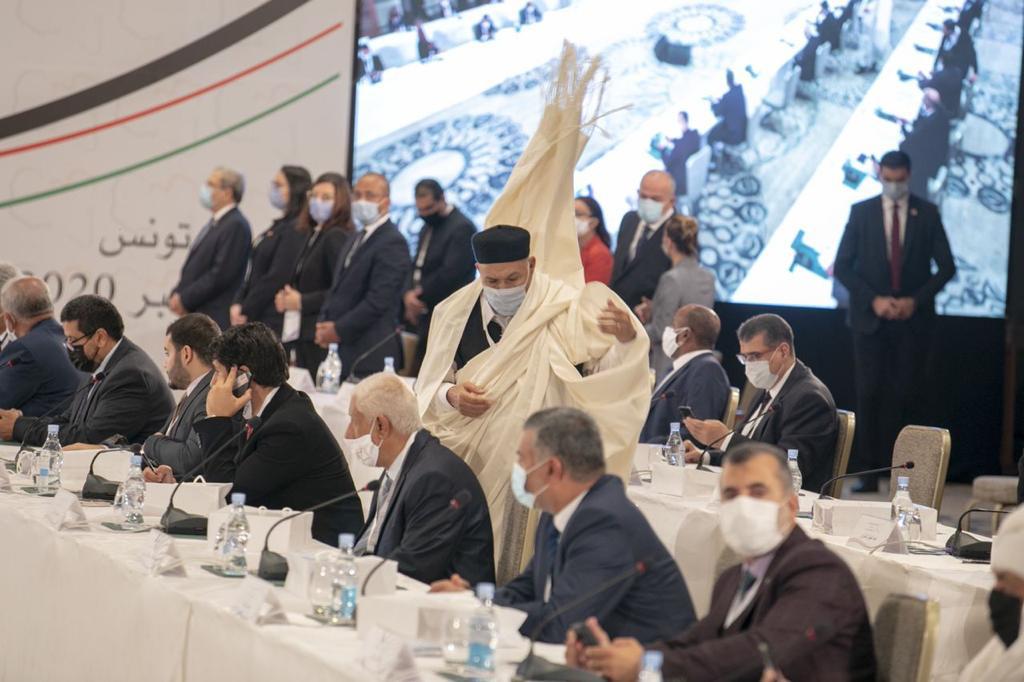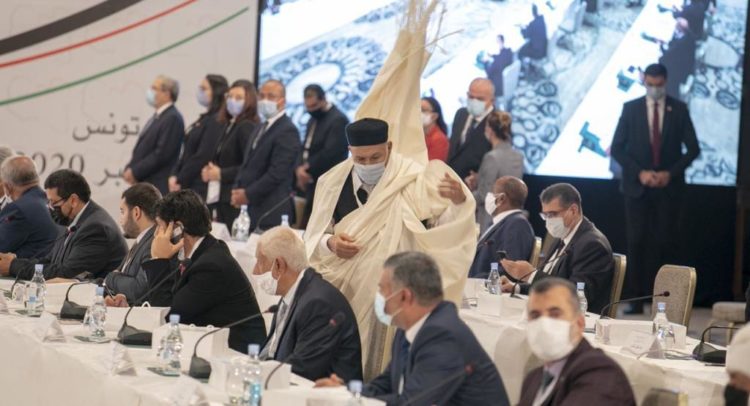
The long suffering Libyan people have endured years of civil war, terrorism and lawlessness. In order to build a new climate of cooperation and unity for the country the UN Security Council established the Libyan Political Dialogue Forum (LPDF) under the Berlin Declaration.
The Forum started its deliberations this week, hosted by Tunisia. It represents all of the major Libyan stakeholders and has a mandate to agree on a new institutional framework and a roadmap to national elections for the country. To succeed in this purpose it will be necessary for the Forum to appoint a transitional administration in Libya to oversee the implementation of a reform process that incorporates human rights and international humanitarian law. It will also need to supervise essential financial and economic reforms that will be necessary to sustain peace and reconciliation.
The Forum will determine Libya’s future institutional framework, by first deciding on how to choose a transitional government leading up to elections, the procedure and constitutional basis for holding general elections. Output from the Forum process is expected next week, and the latest indications from the debates so far suggest that there is a good prospect for the names of the head of the Presidential Council and the Prime Minister to be announced within the next 10 days.
Several candidates for these positions have been nominated and all of the existing options are being pored over carefully by the stakeholders. But the current political environment in Libya and Tripoli is far from calm, which is perhaps not surprising given the long period of instability that the people of Libya have had to suffer. The authorities still cannot guarantee that the advocates of moderation and the rule of law will prevail over the voices of extremism and terror.
The Forum covers a full spectrum of views in their dialogue, with no single set of voices dominating. There is active participation from radical personalities such as the Head of the Supreme Council of State Khaled Mishri – the Muslim Brotherhood, At-Thani – the Prime Minister of the interim government in the East, and Fathi Bashaga – the Minister of Internal Affairs, who was removed from office only a few months ago.
However, the majority of Libyans reject violence and terrorism, and are opposed to foreign interference. They have high expectations that the Forum will provide a peaceful and patriotic dialogue and that it will deliver a positive outcome.
But there is not yet any compromise emerging, or even the basis of mutual understanding between the representatives of the different competing groups. At the Forum, there is determination to make progress and this is testing the commitment of the delegates, as they engage in dialogue to resolve their differences. Although some political experts warn that the Forum may not produce a consensual agreement, the procedure for the Forum which has been set by the UN does make it possible for a declaration to be issued in case delegates fail to reach a compromise between each other.
Even if Marshal Haftar follows the decisions of the joint military commission and does not start a new phase of his counter-terrorism operation, relations in Tripoli are now very tense and the appointment of controversial figures will lead to an escalation of internal conflicts, such as clashes between the Tripolitanian Ministry of Internal Affairs and groups not controlled by them, or even between units of the Ministry of Internal Affairs. All this could lead to a new round of military escalation.
If, however, a consensus is built around technocrats such as Faeiz Saraj or Ahmed Maityg, and a compromise is achieved then Libya has a chance to manage a transition. It will still be fraught with difficulty, and a moderate transitional executive such as this would need the authority to organise elections and implement the necessary reforms to bring some normality back to Libyans’ lives.
But the immediate objective should be to develop national unity and reconciliation, to restore human rights and the rule of international humanitarian law, and to take action to eliminate corruption and terrorism. This will regenerate the necessary political legitimacy and trust to enable national elections to be conducted in a calm, constructive atmosphere and within the early timeframe that the country needs.

